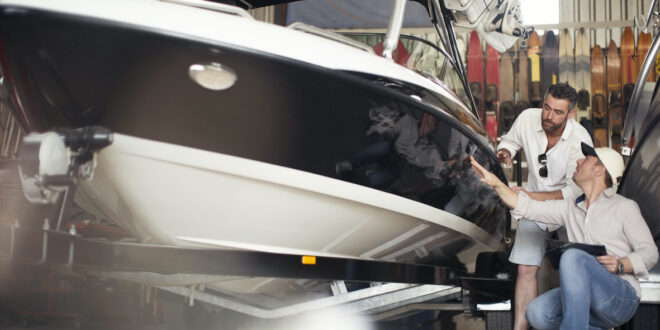With summer upon us, it’s time to ensure your boat is in tip-top condition for the sunny days ahead. Whether you’re an experienced skipper or preparing for your first summer on the water, a little preparation now can help you enjoy smooth sailing all season long.
It’s also worth remembering your boat insurance may not cover loss or damage caused by neglect or poor maintenance. Common exclusions include vessels deemed unseaworthy or trailers unroadworthy. Staying on top of regular upkeep is key to avoiding unexpected issues and ensuring your insurance works for you when you need it most.
Boat Maintenance
A well-maintained boat is safer, more enjoyable, and more fuel-efficient. Here’s how to get your vessel ready for action:
- Replace fuel and oil: If your boat has been idle, stale fuel can clog filters and affect performance. Flush and replace fuel and oil to keep your engine running smoothly.
- Battery care: Check for corrosion, clean terminals, and ensure the battery is fully charged. If it’s struggling to hold a charge, consider replacing it. Batteries left unused for extended periods can degrade, so it’s worth testing their performance.
- Inspect the electrical system: Look over all wiring and connections. Replace or repair any showing signs of wear, corrosion, or loose fittings. Saltwater environments are particularly tough on electrics, so don’t overlook this step. Don’t forget to check your navigation lights as well.
- Check anodes: Sacrificial anodes prevent corrosion of your boat’s metal parts. Inspect and replace them if they’re significantly worn down.
- Examine the propeller: Even minor dents or damage can reduce performance and increase fuel consumption. Remove the propeller to check for fishing line or debris wrapped around the shaft, and grease the propeller shaft before reassembling.
- Hull and deck inspection: Clean the hull and look for cracks, blisters, or barnacle growth. These can affect fuel efficiency and overall safety. Inspect the deck for loose fittings or signs of wear.
- Seacocks and valves: Ensure these can be opened and closed easily. Lubricate them to prevent seizure and replace any that are damaged.
- Anchor system: Inspect the winch, chain, and rope for rust, wear, or weak spots. A well-maintained anchor system is vital for safety during overnight stays or emergency stops.
- Mooring lines: Look for fraying or chafing, and replace damaged lines. Keep spare ropes onboard for unexpected situations.
- Trailer maintenance: Don’t forget the trailer! Check tire pressure, inspect for rust, ensure the lights are functional, and confirm it has a current WOF and registration.
Safety Equipment
Your safety gear is as important as the boat itself. Ensure everything is in good working order:
- Fire extinguishers and flares: Check expiry dates and replace as necessary.
- EPIRB: Test it and confirm the battery is current.
- Life raft: Ensure it’s within its service date and properly packed.
- Lifejackets: Inspect them for wear and tear. Make sure they’re appropriate for the type of boating you do and you have enough for everyone onboard.
Upskill for Safer Boating
Confident, informed boaters are safer on the water. If it’s been a while since your last boating course, consider refreshing your knowledge:
- Day Skipper Course (Classroom or Online) – an introductory Coastguard Boating Education course for all members of the family or crew
- Safer Boating Tips – Get expert advice on preparing your boat, checking your gear and understanding the rules of the water.
- Local yacht or boat clubs often run courses for all experience levels.
Having some formal training or qualifications can make you a more responsible boat owner – something that’s looked upon favourably by insurers.
Insuring Your Boat
A comprehensive insurance policy tailored to your needs is essential for protecting your investment. Review your policy with your broker and update the sum insured if you’ve added new gear, such as fishing or diving equipment. This ensures you’re fully covered for your boat and belongings.
At OverFifty Insurance, they specialise in helping boat owners find the right cover. Whether it’s protecting your vessel, trailer, or valuable equipment, their friendly team is there to help.










Join the Discussion
Type out your comment here:
You must be logged in to post a comment.